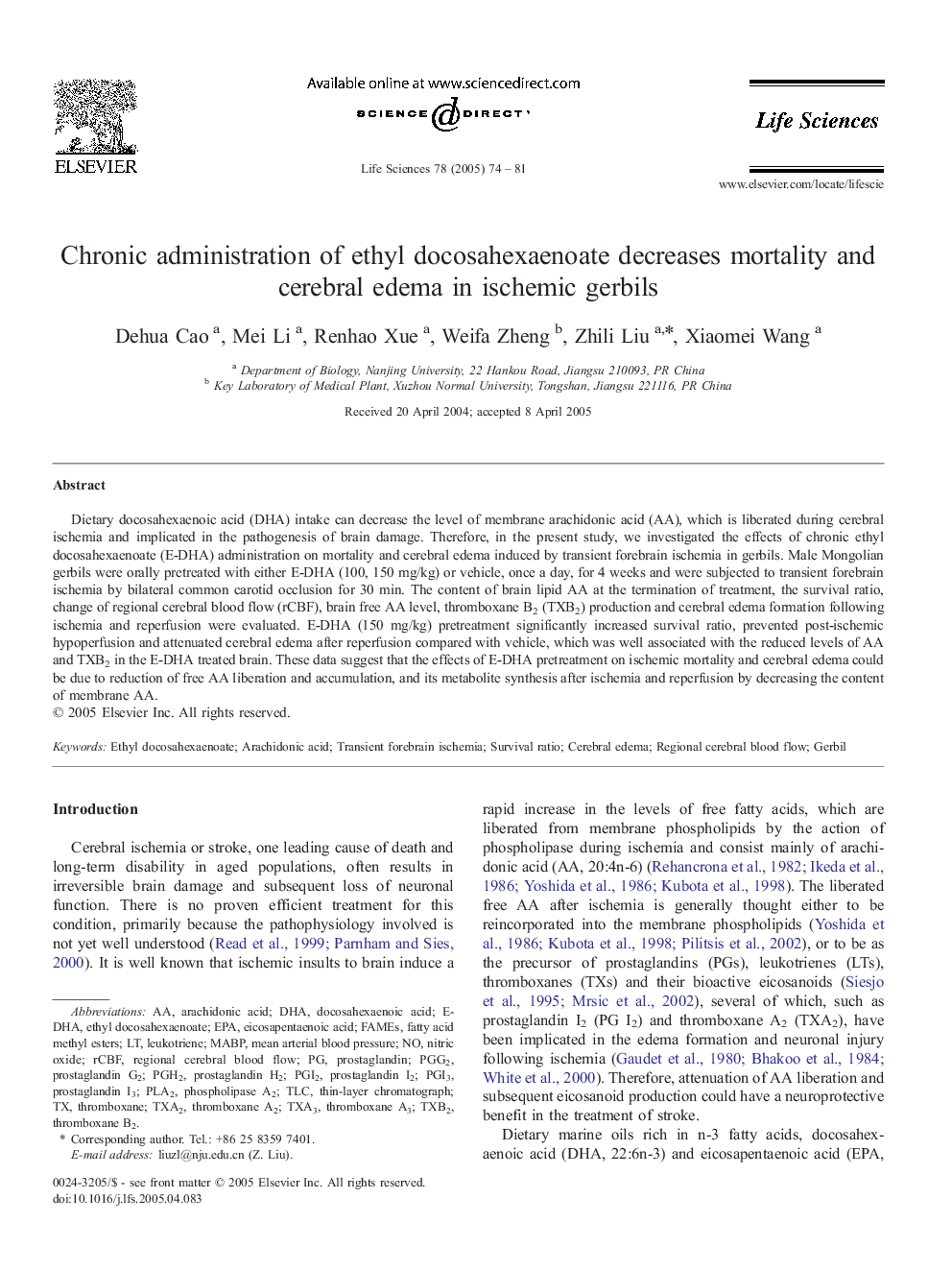| Article ID | Journal | Published Year | Pages | File Type |
|---|---|---|---|---|
| 9012937 | Life Sciences | 2005 | 8 Pages |
Abstract
Dietary docosahexaenoic acid (DHA) intake can decrease the level of membrane arachidonic acid (AA), which is liberated during cerebral ischemia and implicated in the pathogenesis of brain damage. Therefore, in the present study, we investigated the effects of chronic ethyl docosahexaenoate (E-DHA) administration on mortality and cerebral edema induced by transient forebrain ischemia in gerbils. Male Mongolian gerbils were orally pretreated with either E-DHA (100, 150 mg/kg) or vehicle, once a day, for 4 weeks and were subjected to transient forebrain ischemia by bilateral common carotid occlusion for 30 min. The content of brain lipid AA at the termination of treatment, the survival ratio, change of regional cerebral blood flow (rCBF), brain free AA level, thromboxane B2 (TXB2) production and cerebral edema formation following ischemia and reperfusion were evaluated. E-DHA (150 mg/kg) pretreatment significantly increased survival ratio, prevented post-ischemic hypoperfusion and attenuated cerebral edema after reperfusion compared with vehicle, which was well associated with the reduced levels of AA and TXB2 in the E-DHA treated brain. These data suggest that the effects of E-DHA pretreatment on ischemic mortality and cerebral edema could be due to reduction of free AA liberation and accumulation, and its metabolite synthesis after ischemia and reperfusion by decreasing the content of membrane AA.
Keywords
EPAPGG2Ethyl docosahexaenoateProstaglandin G2PGH2PGI2TXB2TxA2PLA2rCBFMABPTLCphospholipase A2Cerebral edemaArachidonic acidEicosapentaenoic aciddocosahexaenoic acidTransient forebrain ischemiathromboxane B2thromboxaneThromboxane A2Regional cerebral blood flowDHAFAMEsmean arterial blood pressureLeukotrienefatty acid methyl estersSurvival ratioNitric oxideProstaglandin H2Prostaglandin I2prostaglandinGerbil
Related Topics
Health Sciences
Medicine and Dentistry
Cardiology and Cardiovascular Medicine
Authors
Dehua Cao, Mei Li, Renhao Xue, Weifa Zheng, Zhili Liu, Xiaomei Wang,
